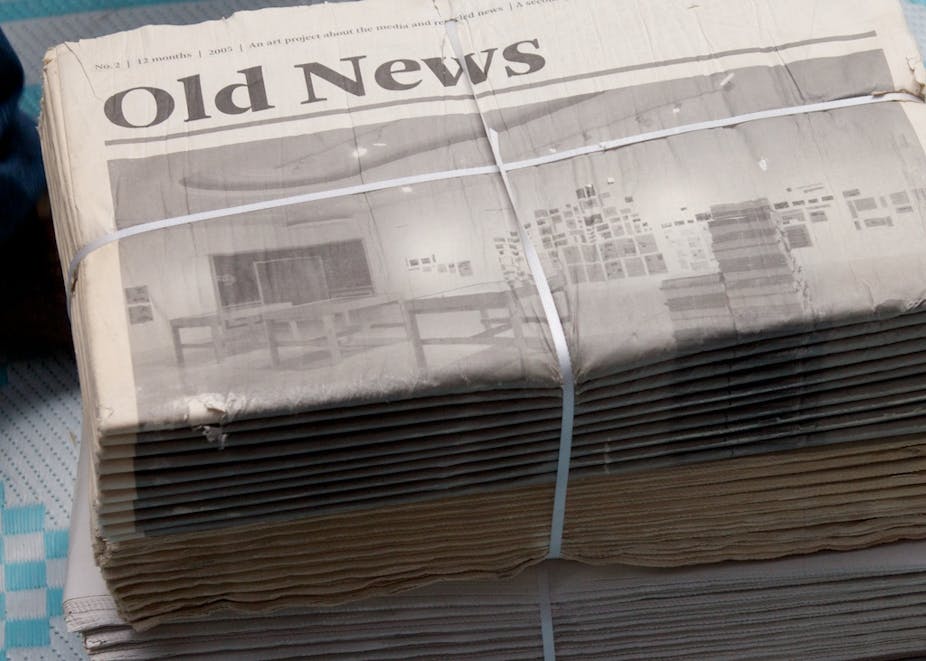Yahoo has launched a new app aimed at making reading the news easier. News Digest is the latest invention from Nick D’Aloisio, Yahoo’s 18-year-old recruit who found fame with Summly, another app that takes the chore out of reading the news.
The idea of News Digest is to offer users short bursts of the top stories of the day and is the latest attempt to solve the problem of how we keep ourselves informed in the modern day. We get such a vast quantity of information thrown at us but struggle to balance it against quality.
Instead of continuously updating, the app only delivers two editions a day to avoid the constant barrage of information online. That’s a refreshing change and makes me hopeful that Yahoo is as sick of the barrage of information on social media as many of us are. But ultimately, whether this app is any good or not will depend on the quality of the journalism behind it. Quality should not be measured by the standards of social media and web information aggregators, but by the classical standards of journalistic rigour and integrity.
Social media has begun to dominate our news consumption in recent years. In 2012, Barack Obama chose to break the news of his re-election on Twitter rather than via an established news outlet. His “four more years” tweet was sent at 5:16am on 7 November and had been retweeted more than half a million times within three hours.
This was the fastest way for Obama to communicate the information to his 34 million followers and only added to the idea that social media is first for news. But it is important to note that what Obama said was true. Social media is first, but not always best and that’s a problem in an age when an ever increasing number of people rely exclusively on social media for news.
Back to Latin
True information and false information travel at the same speed online. That means there is still a vital role to be played by the more traditional press and media even if they stand to lose the race for breaking and short-lived spectacular news tsunamis and #infostorms, like when a giraffe named #marius is killed at a Danish zoo.
With social media, everybody has a direct link to information and misses out on the filter that was once provided by the established press. Web robots constantly scout for “loud” information which is of interest to one public or another and filter bubbles sort information on an individual basis.
It doesn’t matter whether it is information about finance, religion, politics, people, art, science or fashion. The conditions are often perfect for an opinion epidemic to spread as an unreflective contagion, where everybody thinks what everybody else thinks without seeking to back it up with quality information.
Ulrik Haagerup, executive director of news at The Danish Broadcasting Company summed up the problem when he said:
Modern man doesn’t need more news – he needs better news. And journalists should learn that information is no longer a scarce resource. We all drown in the polluted information surrounding us. What people need is means of navigation, meaning and alignment.
If breaking news is free and easily accessible, what we need more than ever is high-quality, in-depth analysis and reflective and properly formatted information useful for deliberation, decision and action.
If Yahoo appreciates that and plans to filter content with this principle in mind, this app might just work. The app will scour reputable news sites like Reuters, Business Insider and Sky News for sources but it will use an algorithm to make decisions about what is and isn’t important when it collates the top 10. We don’t know what feeds into that equation. We could end up with yet another filter bubble.
The top 10 shouldn’t be decided according to noise and hits but more old-fashioned values in journalism.
Sapere aude, or “dare to be wise”, for example. This is the mantra of the Age of Enlightenment indicating the risky nature of acquiring new knowledge. Sometimes it is dangerous to know, you might not always like the truth, the public may not always like it either but as a journalist you are committed to finding it for the better of mankind, science, society and democracy.
Festina lente, or “hurry slowly” is another. Finding the truth takes time, researching properly requires consulting a diversity of sources, don’t run with a rumour and hearsay and don’t get seduced into thinking that just because some opinion apparently trends on social media it mirrors the general public opinion.
Finally, semper ardens – “always burning”. Journalism is a sophisticated skill-set, and as Malcolm Gladwell says, getting good at anything requires 10,000 hours of hard work and practice.
What links all three is time. Time to develop journalistic skill, time to produce a good story and time to reflect on what you’re doing. And time is precisely what news driven by social media has no patience for. However much Yahoo would like to revolutionise news with this app, it must use the old-fashioned way of doing things as a foundation.

